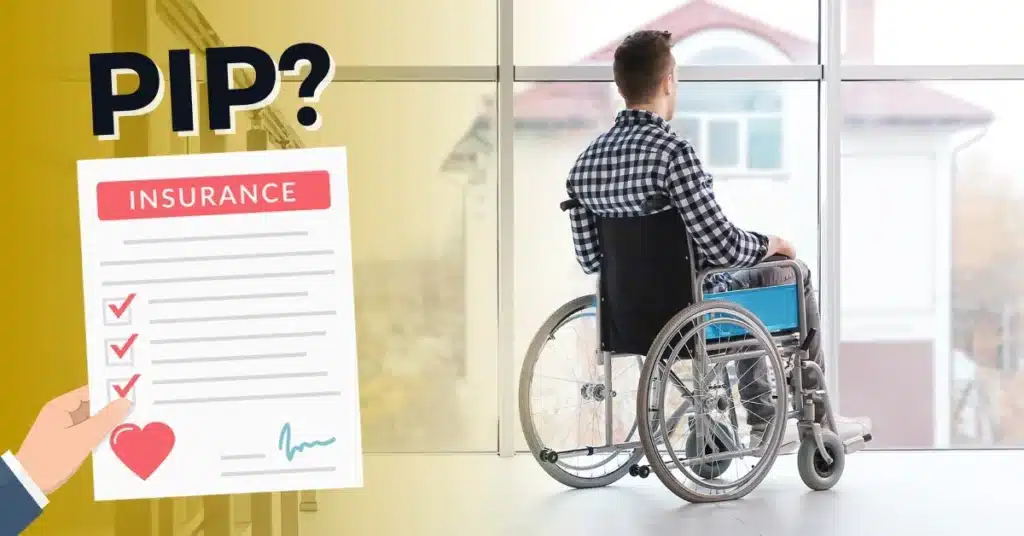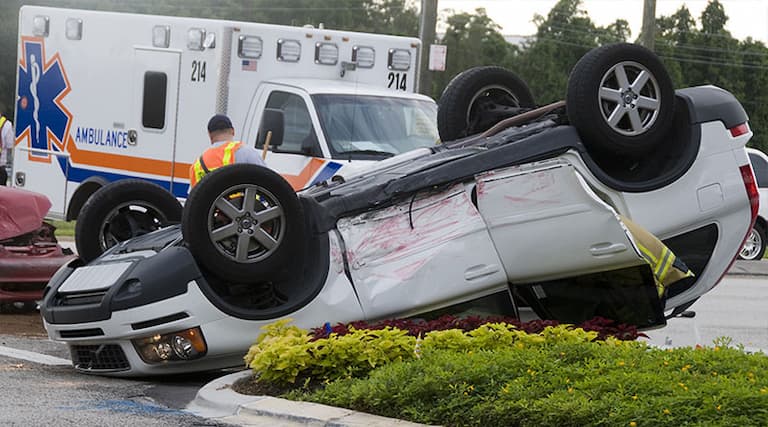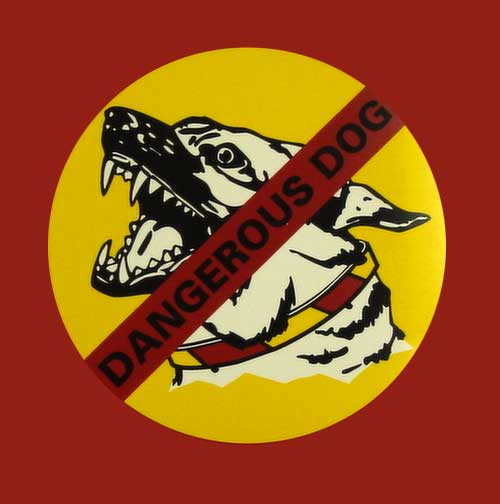What Is Personal Injury Protection (PIP)?
Known as PIP or Personal Injury Protection, Texas, is an insurance policy that offers financial security to policyholders in case of bodily injuries resulting from accidents. Unlike conventional liability insurance that only provides coverage after determining the fault party in an accident, Texas PIP coverage includes medical costs, rehabilitation expenses, work loss wages – regardless of who caused the crash.
Essentially PIP insurance Texas ensures the individual receives necessary medical attention following an accident without waiting for a legal review to determine fault. This becomes highly useful in situations where medical fees are instantly required post-accident as waiting for a decision on fault could delay crucial health care.
What Does Personal Injury Protection Insurance Cover In Texas?
Personal injury protection in Texas is a type of car insurance. In the case of an accident, PIP coverage covers drivers and their passengers. If you are in an accident, your PIP will cover certain costs for you and any passengers in your car, regardless of who was at fault.
According to Texas Law, Personal Injury Protection insurance coverage provides multiple benefits to assist individuals who have experienced a car collision. As per the “fault” system in the state’s insurance claims rules – the insurance of the driver who caused the accident is typically held responsible for paying the other party’s damages. With this, we ask “is PIP required in Texas?” . PIP in Texas is mandatory by Statute, however you can sign a waiver if you want to decline the coverage. PIP usually covers:
- Medical expenditures, including operations, drugs, diagnostics (x-rays, CT scans, etc.), prostheses, nursing care, physical therapy, medical gadgets, and so on, are covered under PIP.
- Ambulance fees
- Services for the deceased
- Lost earnings as a result of injury and recuperation
- Replacement of essential services traditionally given by the injured person, such as child care or housekeeping
PIP insurance kicks in regardless of blame and applies to the covered individual. PIP insurance differs from liability insurance, which kicks in when the insured party is at fault for an accident that causes injury to another person. When the insured party causes a collision, auto liability insurance compensates for the expenditures of others. For example, if you were hit by a careless motorist, you may submit a claim with that driver’s insurance company under their liability insurance coverage.
What Is A Texas PIP Settlement?
A Texas PIP (Personal Injury Protection) settlement is an accord between a person insured under an automobile accident policy in Texas with his or her insurance company on the total compensation for medical bills incurred along with lost earnings after car accidents. The optional PIP coverage in Texas auto insurance avails financial assistance to policyholders to take care of their accident-related medical bills irrespective of who is at fault.
Can I Refuse PIP coverage in Texas?
In Texas, you do have the choice to deny PIP. While insurers are obligated to provide the coverage, you are not required to accept it. To opt out, however, you must express your refusal in writing.
If you refuse PIP coverage in Texas, you will still be covered by the liability insurance of the other motorist if they are at fault in the collision. Because Texas does not have a tort threshold, no claim is too minor to be covered by the driver’s liability insurance. However, if you are at fault for the accident and do not have PIP coverage, insurance will not assist you in paying any associated medical bills for yourself or your passengers.
Is An Attorney Necessary If You Have PIP?
Deciding whether to hire a lawyer for your Personal Injury Protection (PIP) claim hinges on the specifics of your situation. PIP claims are primarily aimed at swiftly covering medical expenses after a car accident, but certain circumstances call for legal expertise. For instance, if your injuries are severe, medical bills are high, or disputes over compensation arise, an attorney can ensure you receive a fair settlement. While PIP claims typically avoid assigning fault, proving fault can be critical in some cases, and a lawyer can help navigate these complexities.
If your situation involves both PIP coverage and a potential liability claim against the other driver’s insurer, an attorney can provide valuable guidance. Moreover, they can be essential if your auto insurer disputes your PIP claim, your medical costs exceed PIP limits, or health insurers delay or deny valid claims. Finally, an experienced attorney can help you navigate the often-confusing legal processes, ensuring a clear and smooth PIP claim experience.
Why Is PIP Coverage Important?
Personal Injury Protection (PIP) insurance in Texas is vital for several reasons. Firstly, it ensures quick access to medical care following an accident, preventing injuries from worsening due to delayed treatment. PIP is considered “no fault” coverage, meaning it provides compensation regardless of who caused the accident, reducing legal disputes and ensuring prompt payments.
It covers a range of expenses, including medical costs, rehabilitation, lost income, daily services, and burial costs in case of death. PIP also aids in recovery by covering lost wages and ongoing medical treatment during the rehabilitation period. It can complement regular health insurance by covering additional medical charges. Furthermore, having PIP insurance provides peace of mind for both drivers and passengers, as it is legally required in some states and safeguards against unexpected financial burdens after an accident, protecting passengers as well.
What If PIP Insurance Does Not Cover All Damages?
If your Personal Injury Protection coverage does not cover all the damages resulting from an auto accident, you might have a few options to explore to address the remaining costs:
Health Insurance: If you possess health insurance, it may provide coverage for medical expenses that exceed your PIP limits. Ensure harmonious coordination between your PIP and health insurance to obtain complete coverage.
Uninsured/Underinsured Motorist Coverage: With limited or no insurance coverage from the responsible party, your own auto policy might offer support. The insurance coverage can extend to include medical expenses when the at-fault driver’s limit is surpassed.
Liability Claim: A liability claim could provide the financial support you need if the other driver’s actions led to the accident. In addition to these, other losses could be included, such as those resulting from pain and suffering.
Personal Injury Lawsuit: When damages are substantial and insurance falls short, a personal injury lawsuit could be an effective solution. In cases involving significant harm and loss, this route could prove effective.
Negotiation: Demonstrating necessity can lead to additional compensation beyond PIP limits, so negotiate with your insurance company.
Consult an Attorney: If uncertainty clouds your options or you face obstacles in obtaining proper compensation, consulting with a skilled personal injury attorney can offer significant support. These experts can help you evaluate your circumstances, investigate possible courses of action, and protect your interests.
What Evidence Do You Need For PIP?
A successful PIP insurance claim requires extensive documentation and proof of the auto accident. The evidence you need to provide may vary based on the insurance company and the specifics of your accident, but here are some common types of evidence that are typically required:
Accident Details:
- Accident details such as date, time, and venue.
- All relevant data, covering drivers, passengers, and other parties, must be collected.
- Police report if it was filed.
Medical Documentation:
- The significance of medical records lies in their documentation of diagnosis, treatment plans, and prognosis.
- Documents containing the charges for medical care, including tests, treatments, and medications, are typically found in hospital and doctor’s invoices.
- Prescription receipts.
Lost Wages and Income:
- Employment and income validation requires supporting documentation (pay stubs, tax forms, etc.).
- Showing documentation from your employer detailing missed work days and lost wages.
Receipts and Invoices:
- Proof of medical devices or equipment acquired due to the accident like crutches and braces.
- Medical treatment-related transportation costs (mileage, public transportation expenses, etc.) receipts.
Photographic Evidence:
- The severity of the incident can be vividly conveyed through images of the accident scene, vehicle harm, and visible wounds.
Documentation of Follow-Up Care: Tracking appointments, therapies, and treatments via records.
Documentation of Communication: A compilation of information exchanges with key entities, such as medical providers and insurance adjusters.
Receipts for Out-of-Pocket Expenses: Record any unexpected expenses, such as medications or medical supplies, to ensure compensation for them.
A comprehensive record-keeping approach is necessary to ensure a smooth claims process. For safekeeping, maintain both physical and digital versions of documentation.
How Are Damages Defined In PIP?
In relation to Personal Injury Protection coverage and liability insurance, “damages” refers to the financial costs or losses you face due to a car crash in which you sustain injuries. These losses are what PIP coverage attempts to mitigate. Damages generally fall under several distinct categories:
Medical Damages: These are costs related to medical attention necessitated by your accident-related injuries. Such damages encapsulate hospital fees, doctor’s charges, surgical expenses, prescription drugs charges plus therapeutic procedures as well as medical appliances.
Lost Income: This category of damages pertains to wages lost because of your incapacity to work on account of the accident. PIP can take care of a fraction of your lost income while you recuperate.
Essential Services: In case your injuries prevent you from conducting essential activities like domestic chores or children care services; the damages could extend to cover the costs of hiring help.
Funeral Expenses: Should a fatal accident occur PIP may offer benefits that can offset part of the funeral burial costs.
Travel Expenses: This classification of damages encompasses mileage cost for medical appointments trips; transportation expenses for medical attention access; plus any other travel-associated cost.
It is important mentioning that PIP coverage has constraints with regards the type of damages it covers as well as its maximum payout amount. The specific kind of covered damages under your PIP policy is subject to the stipulations in your insurance agreement alongside the regulations in your state.













